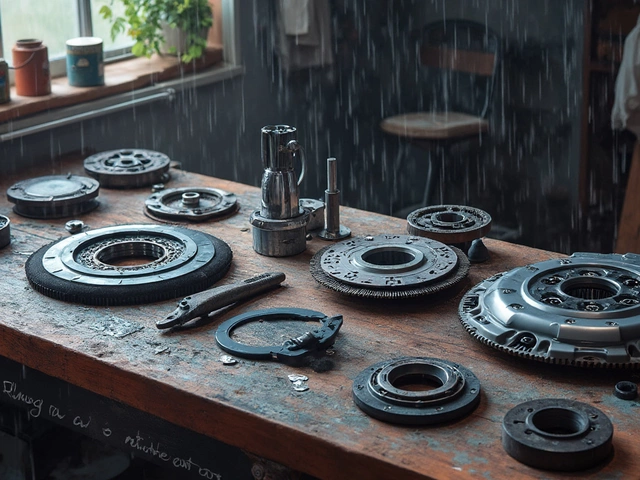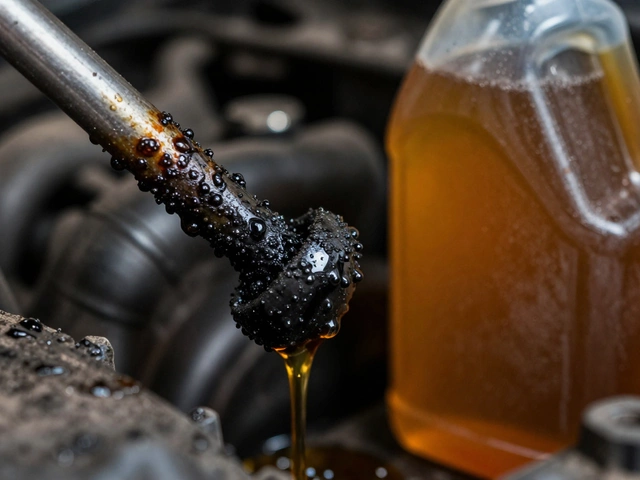Oil Maintenance: Simple Steps to Protect Your Engine
Skipping oil checks is a fast track to costly engine problems. Think of oil as the lifeblood that keeps every moving part slipping smoothly. A few minutes each month can save you from a pricey repair.
How Often Should You Change Your Oil?
Most modern cars can go 5,000 to 10,000 miles between changes. Check your owner’s manual – it tells you the exact interval for your make and model. If you drive lots of short trips or tow heavy loads, stick to the lower end of that range.
When in doubt, use the oil life monitor if your car has one. The gauge resets after each service, so you always know the next due date. Even if the monitor says you’re fine, a visual check won’t hurt.
DIY Checks vs Professional Service
Pulling the dipstick is easy. Park on level ground, wait a few minutes after turning off the engine, then pull the stick, wipe it clean, re‑insert and pull again. The oil should sit between the two marks and look amber‑gold, not black or milky.
If the oil looks dirty or the level is low, top it up with the right grade – usually 5W‑30 or 0W‑20 for most cars. The exact grade is on the oil cap and in your manual. Don’t guess; using the wrong viscosity can hurt fuel economy and wear.
When you’re unsure, bring the car to Northwich Tyres Centre. Our team checks the oil, replaces the filter, and resets the monitor. We also look for leaks, worn seals, and other signs that could turn a simple oil change into a bigger issue.
Some signs you need service sooner than the schedule include: a ticking engine noise, black smoke from the exhaust, or the oil pressure warning light. These clues mean the oil isn’t doing its job and you should get it checked right away.
Don’t forget the oil filter. A clogged filter restricts flow, forcing the pump to work harder. Replacing the filter with every oil change is cheap insurance for the engine.
Seasonal changes affect oil too. In colder weather, thinner oil (like 0W‑20) helps the engine start easier. In hot summer months, a slightly thicker oil can protect against overheating. Our staff can recommend the best oil for the current temperature.
Saving money on oil doesn’t mean cutting corners. Cheap, low‑quality oil can break down faster, leaving sludge behind. Premium synthetic oils cost a bit more but keep the engine cleaner and last longer, meaning fewer visits to the garage.
If you prefer DIY, invest in a good quality funnel, a clean rag, and a proper disposal method for the old oil. Many local councils accept used oil for recycling – it’s safe for the environment and avoids fines.
Still unsure whether to do it yourself or let a pro handle it? Ask yourself: Do you have the right tools? Do you feel confident checking the level and spotting issues? If the answer is no, book an appointment at Northwich Tyres Centre. We’ll do the change quickly, dispose of old oil responsibly, and give you a quick rundown of your engine’s health.
Remember, regular oil maintenance isn’t just about keeping the engine running – it also improves fuel efficiency, lowers emissions, and extends the life of other components like the turbo and timing belt. A little attention now pays off in miles and money later.
So next time you see the oil light flicker or notice the dipstick looking dark, don’t ignore it. Schedule a service, check the level, or pop the cap and top up. Your engine will thank you, and you’ll avoid an unexpected breakdown on the road.
 6 January 2025
6 January 2025
Exploring the Lifespan of Car Engine Oil for Optimal Performance
Understanding the lifespan of car engine oil is crucial for maintaining a vehicle's health and efficiency. This article sheds light on what determines oil longevity, common factors that influence it, and how drivers can maximize oil usage. By knowing when and how to change engine oil, car owners can ensure smoother rides and longer engine life. Explore practical tips and insights into car engine oil maintenance and care.
Tags
- car maintenance
- engine oil
- spark plugs
- brake pads
- engine performance
- vehicle maintenance
- spark plug replacement
- windshield wipers
- fuel pump
- suspension parts
- clutch replacement
- oil change
- clutch kit
- car suspension
- car performance
- air filters
- car radiator
- exhaust systems
- fuel pump replacement
- engine misfire






0